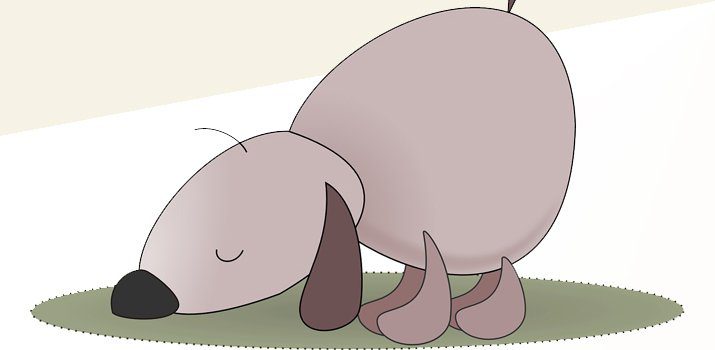
In order not to be bitten, you should know what smell dogs do not like.
If you remember what is the main useful property that characterizes dogs, it will be an oversensitive nose. A dog smells 400 times more than a human. There are 230 million sniffing cells in a dog’s nose. This explains the subtle scent of the animal. It is worth imagining how painful smells are for them, for a person they are simply unpleasant. The four-legged friend is forced to put up with them. But in some cases, the dog is so irritated that it can get out of control. Every owner is obliged to know the smells hated for a four-legged friend.
Contents
Odor Criteria
Paints that release polyester with a pungent odor when dry are unlikely to please anyone. However, the animal’s sense of smell may be dulled while in such an atmosphere.
The four-legged sniffers lose their natural qualities in the summer in the city. When walking, the pet runs along the asphalt surface, which emits asphyxiant gas. This goes on for months. Therefore, the sense of smell of a village dog of the same age as an urban one will be much thinner. The flair of the city dog civilization atrophies.
So, all kinds of sharp household odors are detrimental to the dog’s sense of smell. If a smell is unpleasant to a person, it is 400 times more hated by a dog. The criminals sprinkle traces with fragrant tobacco or hot pepper, because the dog cannot stand such a smell and work on the wanted list.
Acetone, vinegar, alcohols and esters can not only cause the animal to become embittered, but also reduce its instinct. Can’t stand dogs citrus smell. Yes, sharp, but for a person it is pleasant. And even a collar with this unbearable stench is made for dogs in order to wean them from a bad habit.
So, smells that are considered unpleasant for a dog:
- gaseous chemical volatile ether compounds;
- evaporation of chemical compounds of ammonia, vinegar, alcohol and their derivatives;
- smells with notes of citrus and the fruits themselves;
- the release of free chlorine at the time of cleaning with the use of disinfectants;
- pulverulent caustic substances with a corrosive effect on the mucous membrane.
How to keep your pet safe from stress
Service dogs at home should not be near the owner when she is engaged in cosmetic procedures involving the use of acetone, nail polish or aerosols. Detrimental to the sense of smell of such animals are glass cleaners and fragrances, especially with the inclusion of a citrus note.
Soldering with acid is also bad for your pet’s nose. Therefore, while working with pungent odors, the best way out is to go for a walk with the dog. If a visit is planned to visit friends who have a dog, you should not use harsh perfumes, especially with notes of citrus.
intolerable to all dogs is the smell of alcohol. Even the owner is not forgiven for obsessive attention and pestering with caresses to a serious dog in a drunken state. The animal tries to go into the far corner and close its nose with its paw. Loving the owner and worrying about his incomprehensible condition will become a double stress for the faithful dog.
A feast becomes a real test of hospitality for a dog, when the tipsy owner begins to issue service commands, demonstrating the abilities of his beloved dog, and the guests, breathing fumes into his nose, begin to wag the animal on the withers. At such moments, the animal can forget all the lessons of training. The best way out will be at the time of the feast remove the animal away from guests.
How to discourage a dog from prohibited activities
Usually country life in a family where there is a young dog, first brought to nature, becomes a nightmare. He does not understand the presence of beds, walks directly, and not along the paths. In this case, the best solution would be place frightening odors where pets are prohibited.
You can scare away the same smells that dogs do not tolerate in everyday life. But the difficulty is that the aromas volatilize, or pollute the soil. Some recipes for potions that can not harm the dog can be prepared independently based on:
- medical alcohol;
- hot pepper and tobacco;
- citrus fruits;
- vinegar.
Isopropyl alcohol lasts a long time and is used for disinfection. If the dog gnaws on the legs of furniture, then it should be in the care product add some alcohol. In this composition, it will not fade for a long time, and your pet will keep its distance. Tampons soaked in this alcohol and laid out in secluded places in the garden will make your fidget stay away from the fence and not under it.
Hot peppers irritates the mucous membrane of the dog. At the same time, he is the protector of the garden and vegetable garden from a number of insects. With a decoction of hot pepper, you can sprinkle the leaves of plants, pour the powder into the aisles. The action of hot pepper is long, and the dog’s memory for unpleasant odors is good.
Vinegar creates persistent deterrent effect, if tampons or moistened cloths are laid out in places forbidden for the dog to visit. After drying, the textile keeps the smell for a long time, and therefore protection will be provided. Only contact with the soil of a damp vinegar cloth should not be allowed. For plants, vinegar is a poison.
One can create a citrus flavor, smearing the forbidden place with a cut piece of lemon or orange. This smell quickly disappears and the procedure should be repeated more often.
A smart animal will soon understand what the owners are trying to achieve from it and will become a well-mannered dog.





